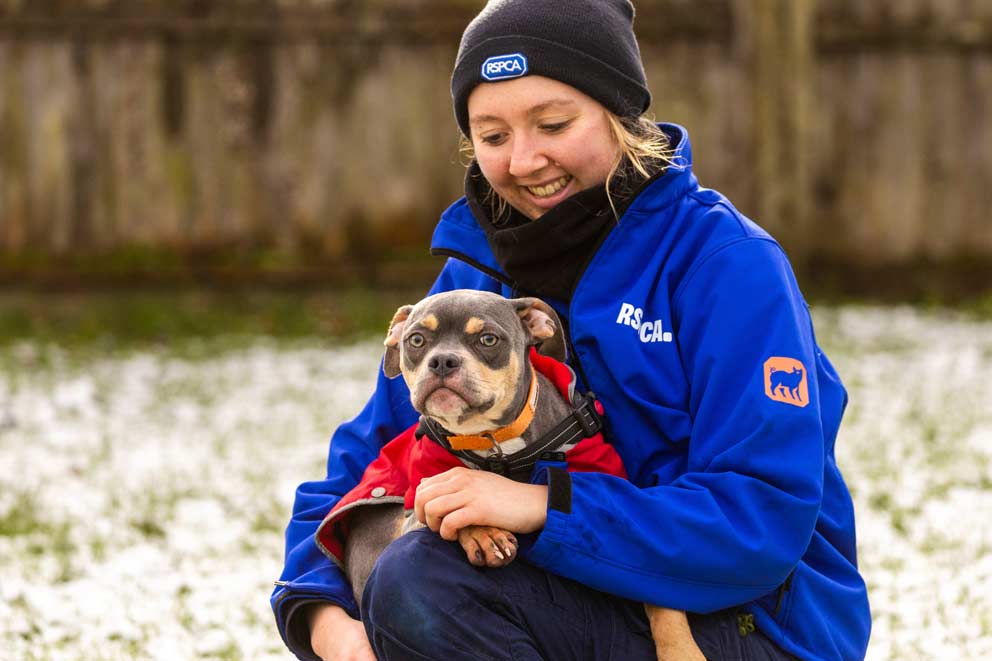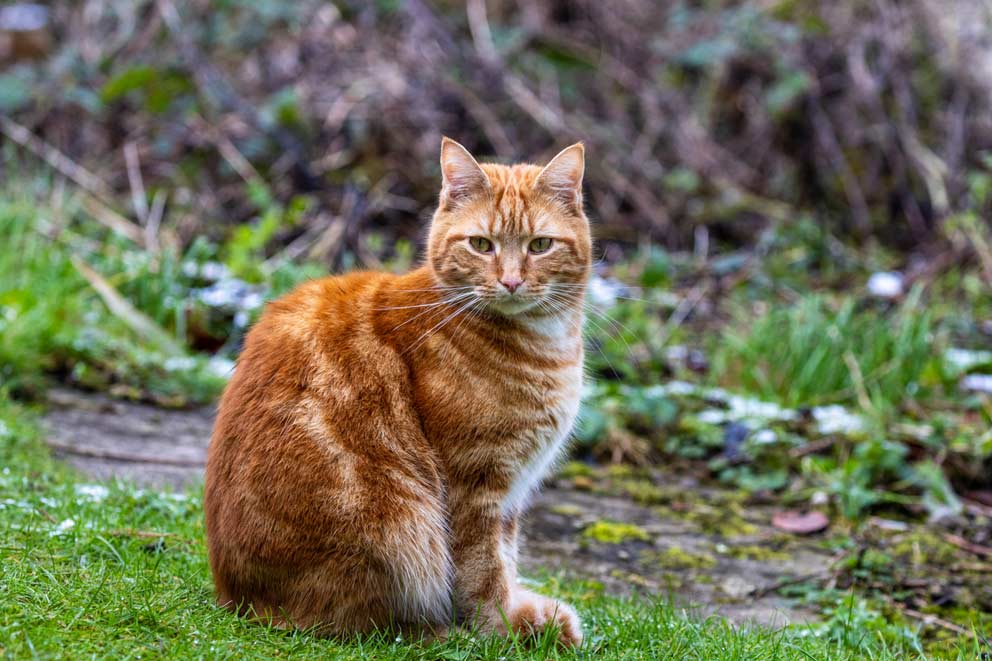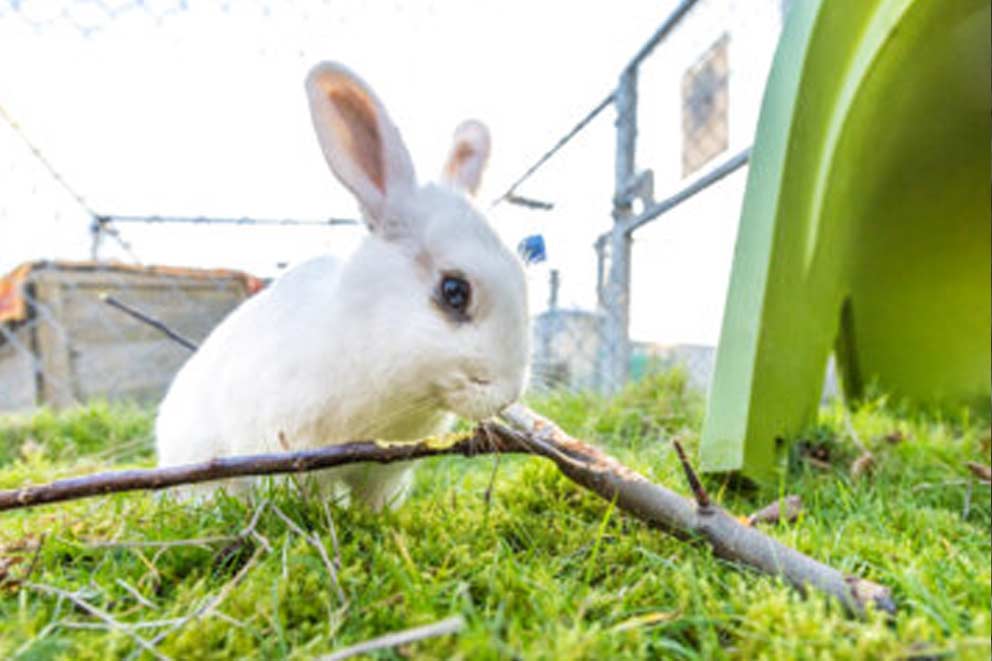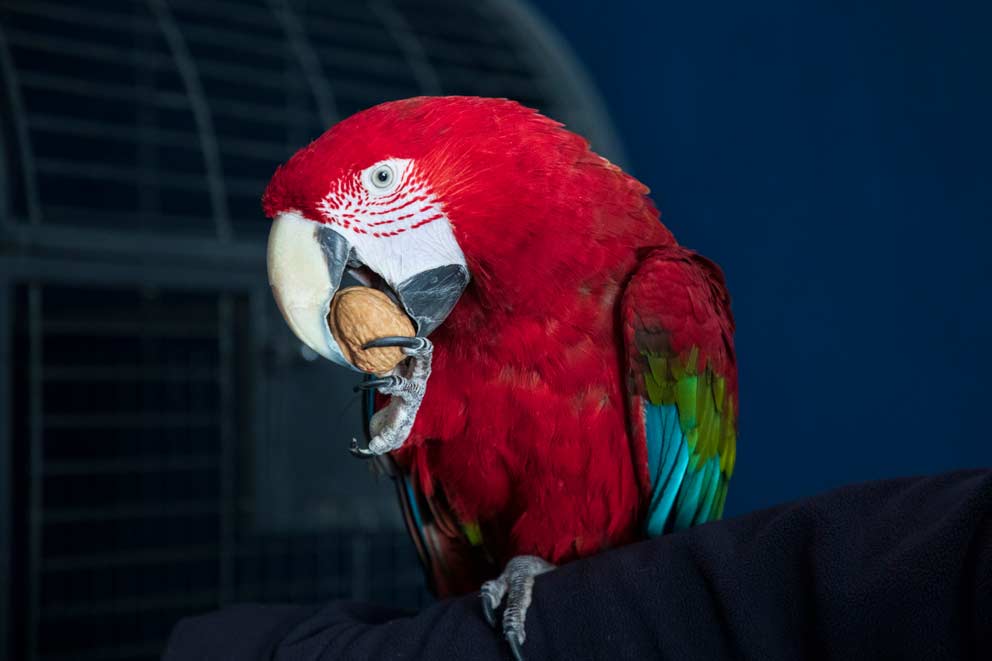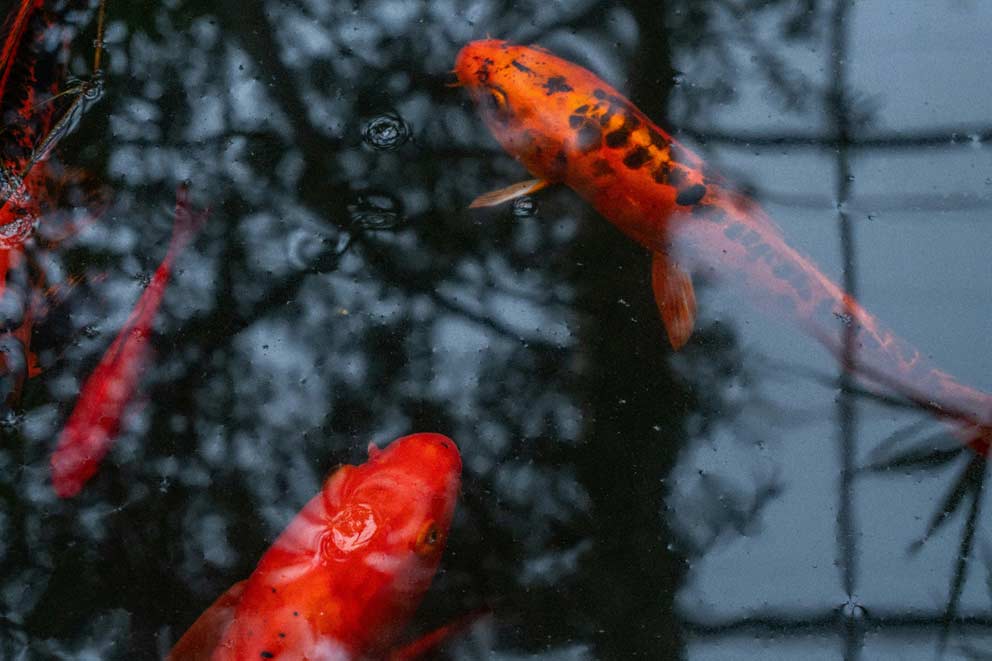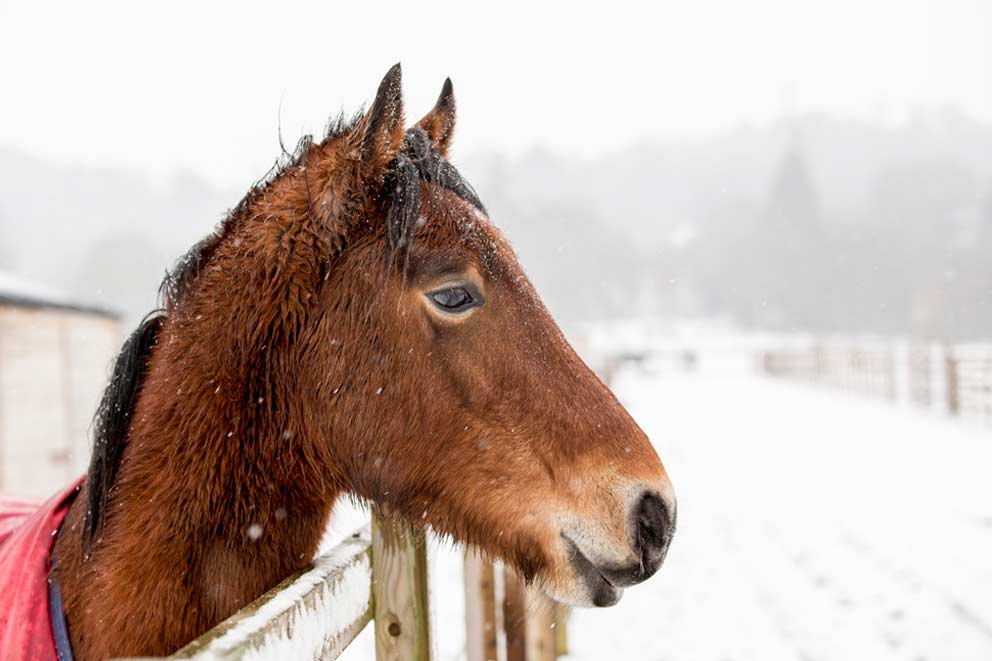Keeping pets safe in cold weather
Just like humans, animals need a little extra care during the cold and dark winter months. Learn how to keep your pets safe, cosy and comfortable with our expert advice. You can jump straight to specific concerns around behaviour, health risks, extreme weather and spending time outdoors, or explore our species guides for more information on your pet.
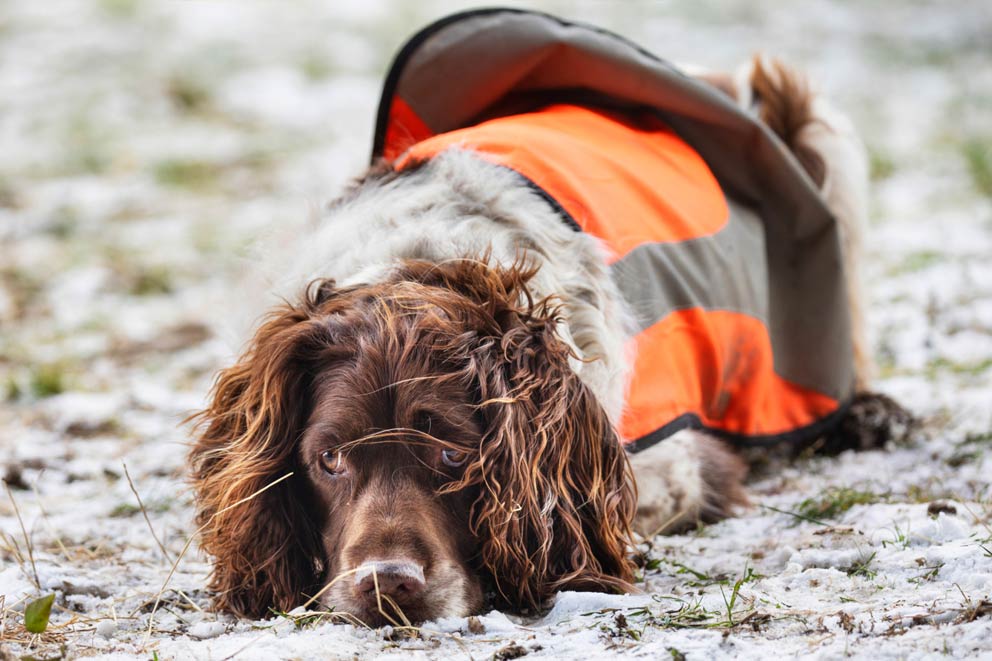
Be aware of natural behaviours
Like wild animals, the natural behaviours of our pets change through the seasons. Knowing what’s normal for your pet in winter will help you spot if something’s wrong.
In winter, it’s natural for our pets to:
- Seek warmth and shelter — many pets may curl up in warm places in the house, such as on blankets, in the sunlight, or by radiators.
- Want to stay indoors — if your pets venture outdoors they may become more reluctant to during winter if it’s wet, cold or snowing.
- Huddle — pets that enjoy companionship may become more affectionate during winter, cuddling with each other or their owners for comfort and warmth.
- Shiver — like humans, pets can shiver when they are exposed to low temperatures for too long. This is more noticeable in smaller and short-haired breeds.
- Eat more and drink less — like their wild counterparts, some pets may want to eat more, in order to bulk up and preserve body temperature. They may also drink less, but dry indoor air and heated environments can lead to dehydration so make sure they always have access to fresh drinking water.
- Groom more — pets may groom themselves more to keep their coats in good condition to ensure they stay warm.
Providing your pet with cosy spots, indoor enrichment through toys and exercise, and a healthy diet can help them enjoy winter. Normal behaviours do vary by species, so explore the guides below for more information on your pet.
Monitor for health risks
Certain breeds and animals with existing health issues are more at risk of falling ill in the winter. If yours is in the list below, keep a closer eye on them and speak to your vet about how to best protect and care for them.
- Flat-faced animals — brachycephalic animals may have difficulty breathing in colder weather.
- Short-coated breeds — animals with shorter coats may be more likely to feel the effects of cold weather. Wrapping them up in a coat when outdoors, or with a heated blanket at home, can help keep them cosy.
- Animals with arthritis — like in humans, cold weather can make animals’ joint pain worse.
- Animals with heart issues — may have difficulty breathing or exercising in colder weather because cold temperatures increase the strain on the heart, reduce oxygen intake, cause airway constriction, and make physical movement more difficult.
Stay safe in extreme weather
Harsh winter conditions can pose dangers to our pets, particularly when they’re out and about. Keep them safe by knowing the risks of extreme weather:
- Cold temperatures – certain species and breeds have minimum temperature limits. Check the guides below for your pet’s needs.
- Wind – extreme winds and cold weather can cause hypothermia. Provide shelter from harsh conditions where possible.
- Snow – snow can hide hazards. Be cautious when letting pets off leads after snowfall and supervise them closely.
- Ice – ice on ponds and lakes can be thin and may not support your pet’s weight. Keep pets away from frozen surfaces.
- Flooding – wet coats or feathers can lead to hypothermia. Dry your pet thoroughly if they get wet.
Keep your pet warm and dry
Keeping pets dry and warm in winter is crucial for their well-being. Cold, wet conditions can cause pets to become chilled, making them more vulnerable to illnesses like frostbite, hypothermia, or respiratory infections.
Pets with short coats or those not accustomed to the cold are especially at risk. By ensuring they stay dry and warm with proper shelter, clothing, or indoor warmth, we help protect them from these dangers and ensure they stay healthy, comfortable, and happy during the colder months.
Be safe and seen outdoors
Poor visibility during dark morning and late afternoon walks can put you and your pet at risk of road accidents. Invest in a reflective vest or coat, or LED gear, to keep you both seen and safe.
When you’re out on your walk, look out for antifreeze and rock salt on the ground, as these can be fatal to both dogs and cats. They may lick the substances off their paws or fur, and thoroughly wipe their feet, legs and tummy after a walk or time outside during cold weather, when there may be grit on the ground.
Never 'watch and wait'
If you suspect your pet's been poisoned, contact a vet immediately.
Explore advice for your pet
Get help caring for your pet in winter
If you’re struggling to keep up with the costs of caring for your pet during winter, we can help. Read tips and guides on how to save money in our cost of living advice hub, and find your local pet food bank.

